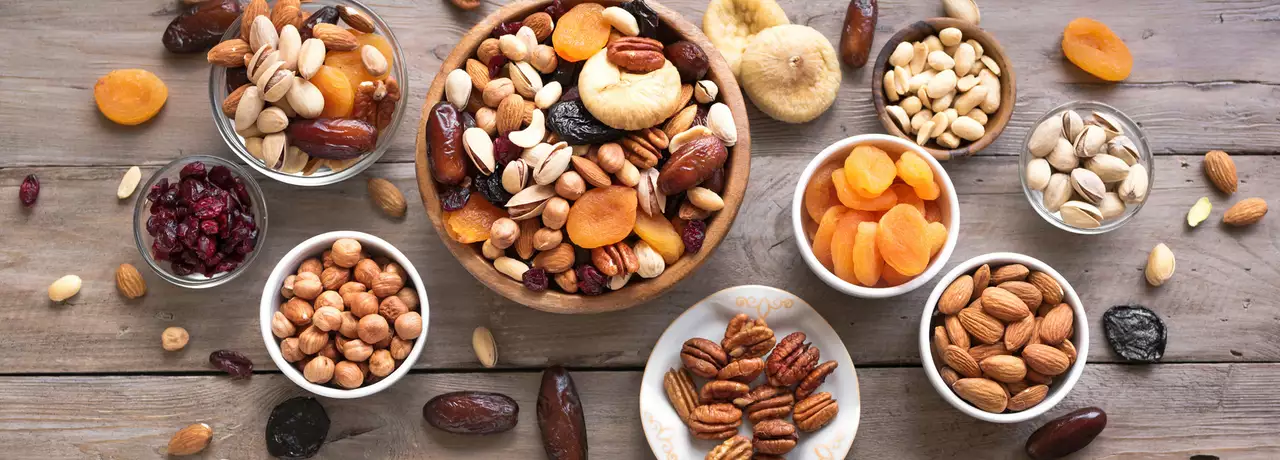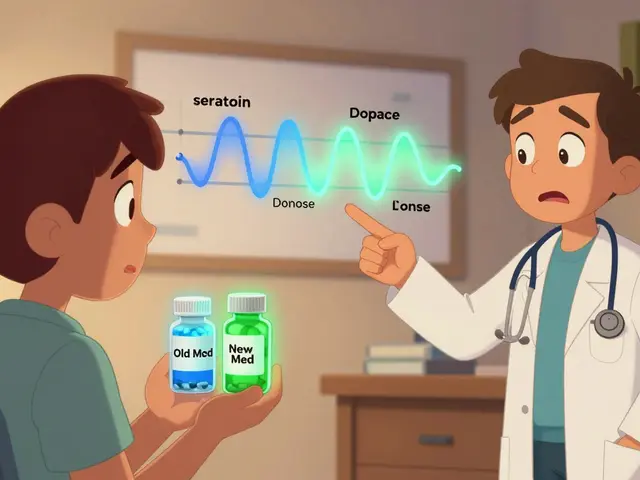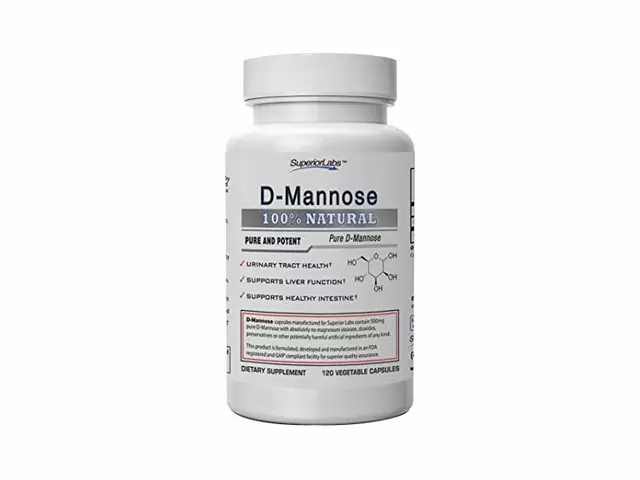The Role of Nuts and Seeds in Managing Hypercholesterolemia

Understanding Hypercholesterolemia and Its Impact on Health
As someone who has struggled with high cholesterol, I have tried numerous methods to manage my levels and maintain a healthy lifestyle. Hypercholesterolemia, or high cholesterol, is a condition where there is an excess of cholesterol in the bloodstream. This can lead to a variety of health problems, such as heart disease and stroke. In this article, I will discuss the role of nuts and seeds in managing hypercholesterolemia and how incorporating these nutrient-dense foods into your diet can significantly improve your health.
The Nutritional Power of Nuts and Seeds
Nuts and seeds are packed with essential nutrients that are beneficial for overall health. They are rich in fiber, healthy fats, vitamins, minerals, and antioxidants. The healthy fats found in nuts and seeds, specifically monounsaturated and polyunsaturated fats, are known to help improve cholesterol levels by reducing LDL (bad) cholesterol and increasing HDL (good) cholesterol. In addition, these healthy fats can aid in reducing inflammation and improving heart health.
Almonds: A Heart-Healthy Snack
Almonds are one of the most popular nuts for managing hypercholesterolemia. They are rich in monounsaturated fats, fiber, and vitamin E, which are known to help lower LDL cholesterol levels. A study published in the Journal of the American Heart Association found that consuming almonds regularly resulted in a significant reduction in LDL cholesterol levels. To incorporate almonds into your diet, try snacking on a handful of raw or roasted almonds, or add them to yogurt, oatmeal, or salads.
Walnuts: A Nutrient-Dense Superfood
Walnuts are another excellent choice for those looking to manage their cholesterol levels. They are rich in omega-3 fatty acids, which are known to have numerous health benefits, including improving heart health and reducing inflammation. Research has shown that consuming walnuts can help lower LDL cholesterol levels and improve overall cholesterol levels. To enjoy the benefits of walnuts, try adding them to your favorite recipes, or simply snack on a handful throughout the day.
Flaxseeds: A Plant-Based Omega-3 Powerhouse
Flaxseeds are an incredible source of plant-based omega-3 fatty acids, which are known to help lower cholesterol levels and reduce inflammation. They are also rich in fiber, which can help lower LDL cholesterol levels by binding to cholesterol particles in the digestive system and eliminating them from the body. To incorporate flaxseeds into your diet, try adding ground flaxseed to smoothies, yogurt, or oatmeal, or use them as an egg substitute in baking recipes.
Chia Seeds: A Versatile and Nutrient-Rich Addition
Chia seeds are another fantastic source of plant-based omega-3 fatty acids, fiber, and antioxidants. These tiny seeds can have a significant impact on cholesterol levels and overall heart health. To enjoy the benefits of chia seeds, try adding them to smoothies, yogurt, or oatmeal, or make a delicious chia seed pudding for a healthy and satisfying dessert.
Seeds and Nuts as a Part of a Balanced Diet
Incorporating nuts and seeds into your daily diet is an excellent way to help manage hypercholesterolemia and improve overall health. However, it's essential to remember that moderation is key. Nuts and seeds are calorie-dense, so be mindful of portion sizes to avoid consuming excess calories. A balanced diet, including a variety of fruits, vegetables, whole grains, lean proteins, and healthy fats, is crucial for maintaining optimal health and managing cholesterol levels.
Combining Nuts and Seeds with Other Cholesterol-Lowering Foods
While nuts and seeds are powerful cholesterol-lowering foods, it's essential to combine them with other nutrient-dense foods known to help manage cholesterol levels. Foods such as oats, legumes, fatty fish, and olive oil can also contribute to improving cholesterol levels and overall heart health. By incorporating a variety of these foods into your diet, you can create a well-rounded approach to managing hypercholesterolemia.
A Healthy Lifestyle for Cholesterol Management
It's important to remember that diet is only one aspect of managing hypercholesterolemia. A healthy lifestyle, including regular physical activity, stress management, and maintaining a healthy weight, is crucial for improving cholesterol levels and overall heart health. By combining a nutrient-dense diet with a healthy lifestyle, you can significantly improve your cholesterol levels and reduce your risk of heart disease and stroke.
Consulting with a Healthcare Professional
If you're struggling with hypercholesterolemia, it's essential to consult with a healthcare professional to develop a personalized plan for managing your cholesterol levels. They can provide guidance on dietary and lifestyle changes, as well as recommend any necessary medications or supplements. By working with a healthcare professional, you can ensure that you're taking the best approach to managing your cholesterol levels and improving your overall health.






Rhonda Ackley
May 6, 2023 AT 18:25Wow, reading about the nutty crusade against cholesterol feels like watching a culinary superhero movie unfold before my eyes. I can already picture a dramatic montage of almonds leaping onto salads, walnuts sprinting into smoothies, and flaxseeds parachuting into breakfast bowls, all while a triumphant orchestra of heart‑healthy fats plays in the background. The way you described the fiber‑binding action of chia actually made me think of tiny nets catching rogue cholesterol particles, and I honestly felt a tear roll down my cheek. I’ve struggled with cholesterol spikes for years, so the thought of sprinkling a handful of these powerhouses into my daily routine sounds like a plot twist I didn’t see coming. Of course, the calorie count looms like a shadowy villain, reminding us that moderation is the unsung sidekick in this saga. Still, the promise of lower LDL and higher HDL feels like a happy ending waiting just around the corner. Your passion for balanced portions shines through, and I can’t wait to give my pantry a dramatic makeover. Thank you for turning nutrition science into a thrilling adventure.
Sönke Peters
May 12, 2023 AT 13:18Sounds like a solid plan – just toss a handful into your day and let the fats do the heavy lifting.
Paul Koumah
May 18, 2023 AT 08:12Oh great another reason to eat nuts because apparently my arteries were bored.
Erica Dello
May 24, 2023 AT 03:05Honestly the post could use a bit more precision its great but watch the sentence structure you’re mixing singular and plural forms and the commas are missing but overall it’s helpful 😊
sara vargas martinez
May 29, 2023 AT 21:58I have spent countless hours digging through peer‑reviewed journals, meta‑analyses, and dietary guidelines, and the consensus remains strikingly clear: nuts and seeds are not mere snack items but potent modulators of lipid metabolism. First, almonds supply a rich matrix of monounsaturated fats which compete with saturated fatty acids for incorporation into lipoproteins, thereby attenuating the formation of low‑density particles. Second, walnuts, abundant in alpha‑linolenic acid, provide a plant‑based source of omega‑3 that not only lowers triglycerides but also exerts anti‑inflammatory effects on the vascular endothelium. Third, the soluble fiber present in both flaxseed and chia forms a gel‑like substance in the gut that binds bile acids, prompting the liver to draw cholesterol from circulation to replenish its stores. Fourth, the phytosterols embedded within these foods physically block cholesterol absorption at the intestinal brush border, further reducing plasma levels. Fifth, vitamin E, abundant in many nuts, functions as an antioxidant protecting LDL particles from oxidative modification, a key step in atherogenesis. Sixth, regular consumption has been shown in randomized controlled trials to increase high‑density lipoprotein, the so‑called “good” cholesterol, modestly yet consistently. Seventh, the micronutrient profile, including magnesium and potassium, supports overall cardiovascular health by aiding blood pressure regulation. Eighth, the satiety‑inducing effect of protein and fat in nuts can help with weight management, an indirect but important factor in lipid control. Ninth, the variety of phytochemicals such as polyphenols contributes to endothelial function and vasodilation. Tenth, epidemiological studies consistently link higher nut intake with reduced incidence of coronary heart disease events. Eleventh, even modest portions, such as a quarter cup of mixed seeds, can produce measurable improvements in lipid panels within weeks. Twelfth, incorporating nuts into meals rather than consuming them in isolation helps blunt post‑prandial glucose spikes, which indirectly benefits lipid metabolism. Thirteenth, the culinary versatility of these foods encourages adherence to dietary recommendations, making long‑term lifestyle change more feasible. Fourteenth, while calorie density warrants mindful portion control, the nutrient density outweighs the caloric cost for most individuals. Fifteenth, clinicians often recommend a “nut‑first” approach when designing heart‑healthy meal plans because of the robust evidence base. Finally, pairing nuts and seeds with other cholesterol‑lowering foods like oats and fatty fish creates a synergistic effect that optimizes cardiovascular outcomes. In summary, the breadth of mechanisms by which nuts and seeds influence cholesterol is both impressive and actionable.
Todd Anderson
June 4, 2023 AT 16:52One must acknowledge that the biochemical pathways through which oleic and linoleic acids modulate hepatic cholesterol synthesis are well‑documented, thereby conferring a legitimate scientific foundation to the dietary recommendations presented herein. Moreover, the integration of such nutrient‑dense foods aligns with the principles of preventive cardiology as advocated by numerous professional societies. Consequently, a judicious inclusion of nuts and seeds constitutes a rational component of a comprehensive therapeutic regimen.
Dexter Smith
June 10, 2023 AT 11:45The hype around nuts often eclipses the reality that overconsumption can sabotage caloric balance, leading to weight gain which counteracts any marginal lipid improvements. While the cited studies show statistical significance, the effect sizes are modest at best, suggesting that nuts alone are not a panacea for hypercholesterolemia. It would be more responsible to emphasize whole‑diet patterns rather than isolating any single food group.
Cherish Capps
June 16, 2023 AT 06:38i think its great to add nuts to ur diet but dont forget to keep an eye on the portion sizes cuz they r calorie dense lol
Amy Carpenetti
June 22, 2023 AT 01:32Overall the information seems balanced and the suggestions are practical for most people